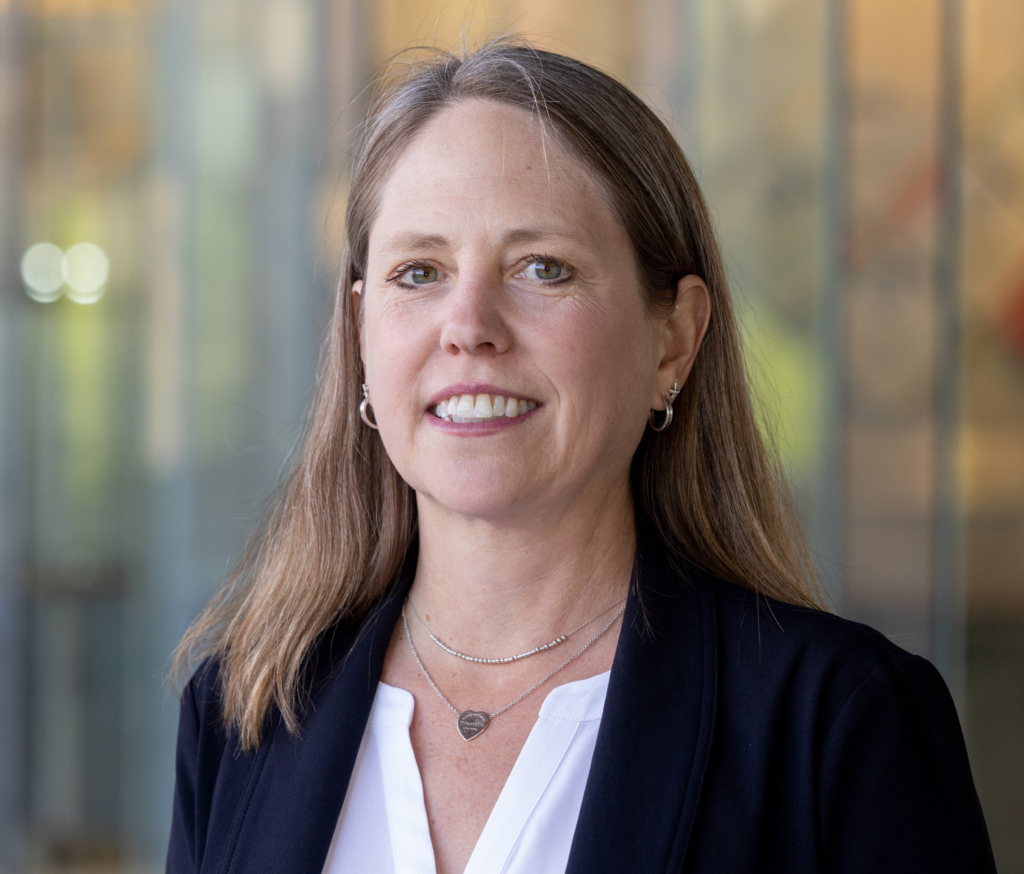Economists have traditionally advanced the idea that women are less competitive than men, which can help explain why there is a persistent gender wage gap. Women are less likely to negotiate higher salaries, ask for well-deserved pay raises, apply for promotions even when fully qualified, and shy away from male-dominated, higher-paying positions. In 2023, just 10% of Fortune 500 CEOs were women, which was a record high.
On February 1, Mary L. Rigdon, Director of the University of Arizona Center for the Philosophy of Freedom and Associate Professor of Political Economy and Moral Science, presented her latest research on gender competitiveness as part of the National Science Foundation (NSF) – Social and Behavioral Sciences Distinguished Lecture Seminar Series. Rigdon’s talk, “Understanding Competitiveness and the Gender Wage Gap,” detailed how social incentives can tap into women’s natural competitiveness. Rigdon thanked the NSF’s Decision, Risk and Management Sciences (DRMS), Economics, and Science of Broadening Participation for supporting this work. She served as a Program Officer at NSF DRMS in 2012-13 and expressed her excitement to be back to present meaningful research that would not have been possible without their support.

Rigdon’s research, conducted with Alessandra Cassar, Professor of Economics at the University of San Francisco, provides a deeper understanding of gender competitiveness while discovering new questions and opportunities for future exploration. Contrary to conventional wisdom, Rigdon and Cassar hypothesized that women are just as competitive as men but motivated differently. To test this, they created a labor market in the laboratory to measure gender competitiveness in two different scenarios: one providing winner-take-all incentives versus an alternative incentive scheme with an option for the winner to share their winnings with one of the low performers in the competition.
Their results were published in the prestigious Proceedings of the National Academy of Sciences. Men were more competitive than women with a winner-take-all incentive scheme, replicating previous results. Strikingly, the competitiveness gap was eliminated when there was an option to share winnings with one of the low performers following the competition. In this scenario, women nearly doubled their rate of competitiveness, resulting in the gap in competitiveness between men and women being eliminated. The even more surprising twist: women were motivated to compete by having the option to share, they did not really exercise the option to share. This is an area where future research is needed to better understand why social incentives motivate women to compete.
Rigdon and Cassar also examined biological and cultural factors that could impact gender competitiveness. Their subsequent analysis was published in a special issue of Philosophical Transactions of the Royal Society B (Biological Sciences). Rigdon and Cassar asserted that women are differentially sensitive to social aspects that are context-specific. Competitiveness in women reflects personal and societal pressures in such a way that the desire to compete for resources is intertwined with concerns about the distribution of those resources. This groundbreaking research is advancing the wage gap conversation from how to change women’s behavior – lean in, be assertive – to ways institutions and incentives should change to promote women’s natural competitiveness. Leveraging social incentives to develop recruitment, compensation, and reward strategies can have a meaningful impact. Organizations with a strong social mission that provide inclusive incentive structures like team bonuses and employment contracts that include benefits for children like paid parental leave, school vouchers, and flexible work schedules have a better chance to engage talented professionals who are great leaders and deliver results.
Upcoming Keynotes
Rigdon will be presenting this research at the Arizona Council of Economic Education Invest in Girls launch in February, as the keynote speaker at the Association of Business Communication Regional Conference in March, and as a confirmed selected speaker at “A Woman’s Worth – Advancing and Empowering” in April at the University of Arizona.
Learn More
Rigdon’s research has been cited by the World Economic Forum as one of fifteen strategies helping to close the gender wage gap around the world, and national and international media have covered it. She was a featured speaker at the 2023 UArizona Wonder House at SXSW.
Read more about this research:
- Prosocial Option Increases Women’s Entry into Competition (A. Cassar and M.L. Rigdon) – Proceedings of the National Academy of Sciences, 11/1/2021; https://doi.org/10.1073/pnas.2111943118
- Option to Cooperate Increases Women’s Competitiveness and Closes the Gender Gap (A. Cassar and M.L. Rigdon) – Evolution and Human Behavior, 42(6): 556-572; https://doi.org/10.1016/j.evolhumbehav.2021.06.001
- Sustaining the Potential for Cooperation as Female Competitive Strategy (A. Cassar and M.L. Rigdon) – Philosophical Transactions of the Royal Society B, for a special issue on cooperation among women (information on all the articles) 378:20210440; https://doi.org/10.1098/rstb.2021.0440


